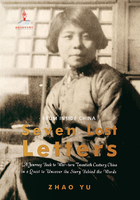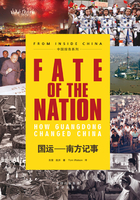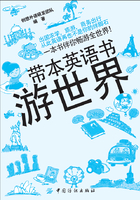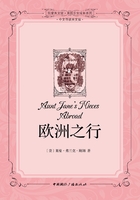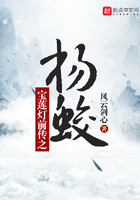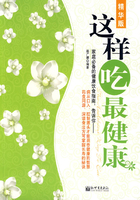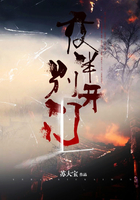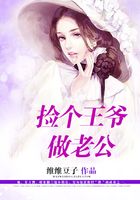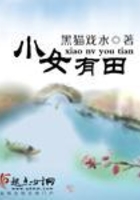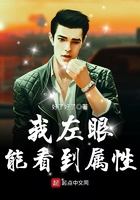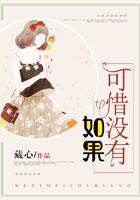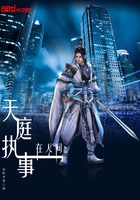1
Spring comes one month earlier in Senke Village than it does in Pu Village. As a food-growing village, the spring ploughing was a matter of primary importance, and the spring ploughing ceremony was the most important in the village's year. It was a reward before the work began and a ritual to pray for the wind and rain to come at the right times. To secure good luck for the coming year, every villager dressed up to attend the ceremony; hence, it was also an occasion for villagers to compare the quality of their costumes.
Senke Village and Pu Village belonged to the same township but they were quite different from one another. Pu villagers dressed up merely because it was an established convention, a task that had to be completed, and they would borrow dresses and ornaments for the occasion. This would have been laughed at in Senke Village. Due to this unhealthy practice, Senke villagers had to tighten their belts to pursue their impractical ambitions.
Over years of living alone, Uncle Tsering had become an outsider from this competition. However, he had Dhajee now. He gave her some money and told her to buy herself a pair of shoes in the county town. It was the very first time her uncle had given her money since she had been there. Uncle Tsering cared so much about his position in the family that he seldom let her go to the storage room by herself. When she took the money, Dhajee felt like she had finally been accepted.
She went to the county town a couple of times and came home with nothing. Now she had the means to buy them, she found it quite hard to find a satisfactory pair of shoes. However, the ceremony was fast approaching and Dhajee had no choice but to buy a pair of men's leather shoes which seemed rather stout. She barely felt any excitement when she paid for them. There was layer of dust on the shoes and Dhajee wrote a Tibetan letter on them with her finger and threw them into the wooden basket on her back. Thinking that the first leather shoes of her life were not the ones she wanted, she became increasingly upset.
When she was in Pu Village, she was keenly aware of other people's shoes, and especially the women workers'. The roads in Pu Village were muddy during rainy days and Dhajee would follow the footprints of the women workers wondering when she could have a pair of shoes like theirs. Now, she finally had her shoes but they were not her favourites. She started to believe what her mother told her: everything in your life is predestined. Don't think you can change it with petty tricks.
The tramp and murmur of the crowds outside the yard was continual on the morning of the ceremony. Villagers walked towards the cropland in succession. Dhajee had heard of the splendid attire on ceremony day. Uncle gave me nothing besides a pair of shoes, she thought. Well, technically speaking, I'm not even a Senke Villager, so what does it matter if I'm not dressed up? She paced back and forth in the yard in her new shoes, squeaking with every step. She was starting to warm to them.
“Come here, Dhajee!” Uncle Tsering called cheerfully from the prayer room. He was wearing a white woolen Tibetan robe and brown wide-brimmed hat. Apart from his dusty and wrinkled boots that were impossible to miss, he looked very fresh. Seeing his boots, Dhajee thought she understood why he had called her. She took a dust cloth and made to wipe them.
“No need,” he said. “We're walking on the dusty road anyhow. You should change your clothes now.” He pointed. Looking in that direction, Dhajee saw a set of brown twill Tibetan robes on the bed. “They belonged to my departed wife, but she seldom wore them when she was alive. She was reluctant to.”
Her deceased aunt's clothes brought to Dhajee's mind the livid face of the old woman who had recently come for the jewellery. She shuddering and said, “Uncle, I'm fine with the new leather shoes. I never imagined I could have them when I was in Pu Village.”
“Dhajee, this is made of Yitali. It's no ordinary cloth. It's far more expensive than wool.”
“Yitali? What's that?”
“My father-in-law brought it from Lhasa many years ago. I heardit was made in a foreign country. Anyway, cloth of this quality is hard to find now.” He explained with his hands to make it clearer, but he ended up confused by his own explanation. In fact, Uncle Tsering had no idea about Yitali either. Despite her confusion, Dhajee stopped resisting. The surprise this cloth gave her overwhelmed the unpleasant feeling that the old woman had left. The robe fitted her perfectly. The crease in its back made it look even straighter and the colour went well with her light purple floral blouse. It would even have gone well with a multi-coloured apron. Uncle Tsering took a three-coloured apron from a cupboard that was usually locked.
“I'm fine with mine,” Dhajee said. She didn't like the colours. Uncle Tsering saw her mind. “The colours may not be the best, but the quality is. This is Xiema (the finest pulu) made from pure wool. No other apron is its equal. Certainly not the ones you brought from Pu Village.”
The aprons Dhajee had brought with her were made of cheap acrylic fibre but she had carefully selected their colours. What's more, they showed the exquisite workmanship of her sister Sangjee. Anyway, Dhajee felt that it was pointless to quarrel with an old man over colours and decided that she had to compromise. She took the apron and tied it over the Yitali robe.
“How wonderful!” Uncle Tsering exclaimed. “As the saying goes, some are born for work and some for pleasure. You're so lucky!”
Her uncle's words made Dhajee feel like she was living on charity, but she could only bury the grievance inside herself and let it dissipate.
“Dhajee, come over here,” he said. “I'd like to show you something.”Uncle Tsering reached into the cupboard again and took out a hexangular iron box. She had seen a similar box at Chamsu's once. They said it was an Indian candy box. Uncle Tsering opened the box gingerly and removed the blue hada. He took a white package out and untied it. There before her was the only set of plastron in Senke Village. The necklace was made of pearls, coral and opal and the plastron was a little box inlaid with gold and decorated with pearls and kallaite. So this is the famous jewellery? she thought.These are the precious ornaments that the old woman cried for? Dhajee had expected something glittering, but the plastron was not as glamorous as she had thought. The coral, amber and kallaite were all different sizes and they had stained pits with dust in them. She was disappointed.
Again, Uncle Tsering seemed to read her mind. “I can tell, you think these are inferior,” he said. “Well, let me tell you, the glittering red coral and green kallaite are the inferior stones. The flaws on these treasures make them all the more real.”
Dhajee tried to stop thinking for fear that her uncle could actually hear her thoughts.
“Take a look in the mirror,” he said. Dhajee's hair was braided with two silk ribbons and balanced on her head. Her face was plumper than before. A curl of hair fell on her forehead. She moved the mirror down quickly so that her uncle would not see her smiling. The light purple collar matched the robe very well. The necklace embellished her neck and only added to her charm.
“Dhajee, there are seven pairs of corals, four pairs of ambers, eight pieces of kallaite, one opal and many pearls. Be careful not to lose any of them. Don't drink wine and steer clear of crowds.” He gave her this warning over and over again, gradually depressing her and making her feel stressed. “I think I'd better take it off,” she said eventually, reaching out her hand to unfasten it.
“Don't take it off,” he insisted. “The spring ploughing ceremony has become the occasion for villagers to compete with each other in dress and ornaments. You'll be looked down upon if you don't wear it.” He didn't read my mind that time, Dhajee thought.
Since she had never dressed up like this before, she could barely walk normally. Even the shiny leather shoes seemed to laugh at her.She trampled them into mounds of dust deliberately to dull their shine. Only then did she feel some relief.
2
Administratively, Senke Village was divided into several work groups. Emotionally, it was divided into many support groups. Each support group consisted of ten or so families based on their preference. A family became a member of a group if their ancestors had once been in it. The history of Senke's support groups was not so long that the aged could not remember some of it.
Uncle Tsering, Kelsang and Kelsang's mother lived next to each other but they were not in the same support group. The members of Tsering's group had gradually fallen out of contact with one another. Only on the occasions of spring ploughing, autumn harvest or funerals would group members show up and lend a hand. They never showed up for joyous occasions.
With the help of the group, Uncle Tsering was in no hurry about the spring ploughing. A divination had said that the first furrow of the year should be made by an attractive man and woman, both born in the Year of the Ox, whose parents were still alive. It was a glory for any support group to have such a pair. In Tsering's group there were two men and one woman born in the right year. Since Dhajee's father had passed away, she was not eligible. The elected man was the same age as Dhajee; he was strong with bright eyes and graceful eyebrows. His partner was a plain-looking, stocky girl, causing much discussion among the young women.
Dhajee had never seen this young man before. His crew cut was extremely eye-catching among the villagers and it was apparent that his face had barely been exposed to the sun and rain. The bronzed men around him made him seem even younger. He wore a gold-wrought hat, a linen shirt, a black pulu Tibetan robe and black boots. He was known as the charming “steed”. Young women vied with one another to accost him. Even Dhajee felt her heart throbbing slightly when she saw him.
The charming “steed” was not an experienced farmer. His two cows wouldn't listen to him and just walked off in opposite directions, making him feel very awkward. Most people were too busy to notice his predicament, except the girls whose eyes were always on him. At this point, Dhajee came out boldly and helped him rope the cows. She later regretted doing this.
Ex-servicemen are commonly called “Three-year peach blossoms” in the village. As the charming “steed” was indeed ex-military, the ridicule of the bronzed farm-working men came one remark after another. It was true that the charming “steed” had been pulled out of embarrassment by Dhajee, but his father saw things differently. For him, seeing his son shown up by a woman in farm work was worse than seeing him in embarrassment. He couldn't help but scold him in public, embarrassing the charming “steed”so much that he barely dared to look at his father. At that moment, he accidentally met Dhajee's eyes and became even more flustered.
The villagers had foreseen such an ending three years ago when the charming “steed” refused to listen to his family and joined the army. His father now regretted letting him leave the village. He went to see the world but he came back completely ignorant of farm work. His father cared too much about what people were saying and he blamed the beautiful stranger Dhajee for what had happened during the ceremony. He and Tsering had been close friends when they were young, but they drifted apart over some dispute or other. This incident convinced him that Tsering sent Dhajee to destroy his reputation.
The brief but bustling ceremony was the prologue of the spring ploughing. Afterwards, all the support groups would enjoy themselves with feasting and other kinds of entertainment. The father of the charming “steed” was a man of almost sixty years and he could hide his true feelings well enough to sit with Tsering at the feast. Uncle Tsering felt at his ease and proposed a toast without scruple. “I told you, Sangbu!” he began. “Three years ago, I told you your son would have to come back and till the land no matter what. Now he can't even handle the cattle! I heard he didn't want come back so he spent a couple of months there looking for a job, right? You think it's easy to find a job there? The town is never short of eggheads!”
“You're right,” Sangbu replied, contradicting what he really felt.
“He may be some kind of city guy,” Uncle Tsering continued, “But what of it? He has to come back here and work on the farm after all. Can he get used to this rural food, you know, tea and tsampa?”
“No, he's fine with it. We don't have tea and tsampa every day,”Sangbu replied calmly.
The two men had been in the same support group since they could remember. It was their destiny to share woe but not happiness.The members could count on one another when they were in need. Since group members seldom had a chance for a happy get-together,everyone was rushing to pour wine from their own wine pots. Uncle Tsering had drunk so much that he couldn't speak clearly. “Dha…Dhajee. Pour wine for your uncle Sangbu,” he slurred. “We're very close friends. Since we were young. Sangbula. This is my adopted daughter. You probably haven't seen her before, right?”
“Uncle, you're drunk,” Dhajee whispered with concern.
“Hey!” Sangbu scolded her. “You've only been in this family for a couple of months. How dare you rebuke your uncle? We're enjoying ourselves now and all you should do is pour the wine. Don't speak out of turn again!”
The smile froze on Dhajee's face. She could find nothing to say. Now the charming “steed” came to her aid. “Dad, you're talking too much. I think you're drunk,” he said.
Just like when Dhajee tried to help him during the ceremony, his attempt to help her was misjudged and poorly timed. Enraged, his father seized the chance to let off steam with sarcastic remarks. “Shut up!” he yelled at his son. “What else are you capable of besides embarrassing me? You think you're from the city? Well, people turn their noses up at you! Do you know what they call you around here? The ephemeral peach blossom!”
It was said that the men of Senke Village were magnanimous; they joked about everything without scruple. This was different. With the help of the wine, Sangbu released all his anger. Worse, since Uncle Tsering was drunk too, he didn't even realize the situation and went on, “Ephemeral peach blossom, ephemeral peach blossom. The peach blossom only has three complacent years before it falls. So you've seen the world, and now so what? That's meaningless. You still have to deal with dirt and you're still a chuff. Ha!”
The charming “steed” didn't mind the teasing and even laughed with Tsering, but his father looked even angrier. Dhajee wanted to get her uncle out of there, but she couldn't. Who knew what Sangbu would say next? Seeing his words provoking laughter among the crowd, Tsering went on, “Sangbu should take responsibility, too. You wasted three years' time for the purpose of seeing the world. You have no idea what you could have done in three years here. You could have become a good farmer or maybe an eminent monk if you'd spent three years as an apprentice. What have you learnt in these years except how to indulge in white rice and wheat flour? I don't think you can live a day without them!”
The charming “steed” replied to Tsering's complacent sneers with a mere smile. Suddenly, Sangbu slapped his son across the face. “Idiot!” he yelled. “Who do you think they're laughing at?”Then he kicked his son in the back. The charming “steed” fell to the ground, upending the wine bucket. People instantly reached out to try to save it and their loose clothes knocked over bowls and bottles. Everything was in mess. At that point, Uncle Tsering magically regained the bearing of a highly respected man and scolded Sangbu,“As one of the richest men in the village, you should behave yourself instead of acting like a crazy man!”
Now the floodgates of Sangbu's wrath finally broke. He rebuked his son, Uncle Tsering and anyone who tried to get involved. Soon, rebukes were not enough for his anger. He grabbed a bowl-sized stone and tried to hit Uncle Tsering with it. Dhajee and his sons advanced and stopped him. After this, Sangbu's family supported him home.
Now the chaos had passed, Kelsang pointed at Dhajee's chest and said, “Your necklace is gone!” Dhajee had protected it carefully until she saw Sangbu try to hit her uncle. She patted for the necklace but felt nothing there. She looked down and saw it broken on the ground in a scattering of white pearls. The villagers bent over and picked them up for her. Someone asked her to count them and make sure they were all there. Dhajee knew very well how many beads the necklace had. “One of the corals is still missing,” she said, choking as she heard herself say the words. Luckily, all the villagers were busy searching for the coral. If anyone had come up to comfort her, she would have cried.
That morning, Dhajee had thought that her Uncle was warning her repeatedly because he was reluctant to let her wear it. Now she understood. Who could have guessed that such a thing would happen? She recalled the saying, “You will suffer losses if you close your ears to your elders,” but it was too late. Dhajee didn't dare to look in her uncle's eyes; she could hardly imagine what else she would see in them besides blame and resentment.
In fact, Dhajee had misjudged him. Uncle Tsering became completely sober after such chaos. He was fully aware that Dhajee tried to protect him out of affection. He wasn't angry about the broken necklace, but he was upset that someone had almost struck him. As a highly respected man in the village, everyone called him Uncle Tsering and treated him like their uncle. Despite this, he had been humiliated! The more he thought about it, the angrier he became. He spoke to Dhajee as though he were speaking to himself, “If it's meant to be found, you would have found it already. If it's in someone's pocket, you'd better save your time.” He threw his bowl into his bag and left in a huff.
No one could afford to be convicted of theft, so no one dared to leave before anyone else. Subsequently everyone spent the rest of the day helping Dhajee look for the coral. In the end, their efforts were in vain.
3
After the spring ploughing, Uncle Tsering fell seriously ill. He didn't blame Dhajee for losing the coral. After all, a coral means nothing compared with human life. His illness was caused by his depression.He sighed more frequently every day following the ceremony. He was depressed because the fighting never stopped in Senke Village. In spring, people fought for seed; in summer, they fought for water; in autumn, they fought for threshing ground and in winter they fought for manure collection. At first, Dhajee thought it was because of the missing coral. She never thought it was because of the fighting. Anyway, he was tired of taking it all so seriously but he couldn't shake the image of Sangbu brandishing a rock at him. It was like a nightmare. Unable to eat or sleep, he became progressively thinner until he was eventually confined to bed.
Uncle Tsering's health became the concern of every villager. People watched Dhajee's every move. They thought it was the best chance to test her. Some of them even said that Dhajee would take virtually no loss to gain her uncle's possessions if he passed away easily. He had good days and bad days and his illness exhausted Dhajee.
Thanks to his illness, Uncle Tsering regained some compassion from the villagers. They didn't sympathize with him on principle;rather, they were partial to him because he was the victim. The reason they originally took his side was because their get-together had been ruined, but they shifted their ground again later when he'd said,“If it's meant to be found, you would have found it already. If it's in someone's pocket, you'd better save your time.” This had insulted them. Now that he was at death's door, they began to sympathize with him again.
Almost every family came to visit him except Sangbu's. They brought bottles of sour wine and lumps of yak butter. They presented ideas and said a few words of comfort in the hope that they would see him get better. The mother and daughter next door put aside their hatred of Dhajee and offered to help. As the old saying goes, they were like the stove shovel that Dhajee needed. But when everything that could be done had been done, Uncle Tsering was no better. Instead, he was wasting away and his state of mind was getting worse.
“Tseringla,” Kelsang's mother said. “You've been taking medicine for such a long time and the Lama came here to pray for you. We've done all that can be done but you're not getting better. I suggest we hold a séance.” She spoke as though this idea had been lingering in her mind for some time.
“They still do that? I heard it was banned years ago,” he replied, his eyes lighting up. He thought for a moment, then continued, “Butno. Alas. Let's forget about it. I think I've lived long enough, anyway. I don't want to trouble the kid.”
“How would this trouble her? Besides, it wouldn't cost much. There's a young woman in the next village known for her mana. I can invite her if you want.” Kelsang's mother inhaled the snuff on her thumbnail and blew out a huge cloud. Uncle Tsering started coughing hoarsely and could not stop.
“Are you okay? You just started coughing out of nowhere,”Kelsang's mother asked, not realizing that she was the one making him cough. She licked the rest of the snuff off her nail and rose to fetch a bowl of tea for Uncle Tsering, saying, “Dhajee wore too many ornaments to the ceremony that day. Perhaps someone was envious of her and that person's Hearth God is punishing you now. That could perfectly explain the missing coral and your illness.” When she finished speaking she curled her lips as though she realized she had been talking too much. In fact, what she had said was precisely Uncle Tsering's theory. He chewed over her suggestion and made uphis mind. “Since Dhajee's not familiar with people here, I'll have to trouble you about this séance.”
“No problem. I may not be able to afford it, but I can certainly run the errands for you.” She was trying to make herself clear in case Uncle Tsering misunderstood her.
“How could I let you pay for it?” he asked. “Besides, it won't do me any good unless it's me paying. I'll ask Dhajee to give you the money when she gets back.”
Kelsang's mother overestimated herself. She failed to invite the young woman from the next town to Uncle Tsering's house. However, the young woman promised to hold the séance in her own house.
When the day came, Dhajee went to the neighbouring village with Kelsang's mother. She was a little disappointed with the young woman when she first saw her. She was very shy when talking to strangers, she kept rubbing her apron and seemed very introverted. After they had greeted each other, the young woman's family helped her to put on a heavy robe. In a moment, she turned into a majestic and dreadful local God. “You're a crafty woman!” she said to Dhajee in a deep male voice. “You don't seem to believe me. So why bother to invite me?!”
Dhajee was taken aback by this. She never thought she would be so transparent to Gods. She immediately sprinkled some highland barley in the air amid a string of apologies.Eventually,she described the nature of her uncle's illness.
“So he has been taking Tibetan medicine, and that didn't work, right?”
“Yes. Yes.”
“That won't help him! He ignores me, spits at me and treads on me every time he passes! I won't let him off so easily this time!”
“Please forgive our ignorance. I promise we'll worship you tomorrow,” Dhajee said, then put her palms together devoutly and repeated the words.
“Please forgive us, we promise we won't do it again,” Kelsang's mother begged, kneeling down.
The fierce God was moved by their confession. It sounded as severe as before, but its words relieved Dhajee. “He won't die,” it said.“I just want him to learn his lesson and treat people with kindness.”
“Would a Western-style doctor be helpful?” Dhajee asked.
“Yes,” it replied, “But you should worship the Gods first before seeing the doctor. Western medicine will work.”
“Thank you so much,” Kelsang's mother said, making a bow with her hands folded in front of her chest again and again. Suddenly, Dhajee asked, “I lost a coral bead during the spring ploughing. Will I find it?”
“I don't think so,” it said. “The coral is already in someone else's pocket.”
Dhajee had dismissed any hope of retrieving the coral but it still made her feel lost when those words came out of the God's mouth. She was immersed in a feeling of loss.
The young woman's voice became lower and lower until she slumped trembling on the mat. Dhajee felt pity for her. She approached her to help her take off the robe but Kelsang's mother stopped her with a look. The young woman gradually came back to herself. She took off the robe herself and turned back into the bashful young woman who greeted them.
When they had worshipped the Gods as they promised and Uncle Tsering had taken the Western medicine as he was told, he did indeed get better. Dhajee had disdained this kind of thing in the past but this experience made her believe that our lives really are manipulated by something mysterious.
Uncle Tsering had been laid up for a long time. The seeds that were planted the day he fell ill were already young crops. During those days, he had been indifferent to the mundane life, but the first thing he did after he got better was to go to the cropland. He was a peasant farmer after all.
Dhajee visited the site of the get-together every time she went to the cropland to work, hoping to find the coral bead. However, she ended up with nothing every time. One day, she was headed there yet again after walking around the cropland with Uncle Tsering. “Why bother?” he asked. “We don't have a mark on that coral. Maybe it's already a part of someone else's necklace.” Despite his muttering, he followed her spontaneously.
The desolate scenes of early spring had been replaced with verdant green and the bald land was prosperous with grass. Uncle Tsering stared at all of this through his narrowed eyes, feeling that everything had changed dramatically. His breathing was heavy since his illness and he broke a sweat after just a few paces but he was quite excited. However, his excitement was soon replaced by anger. There was a man rummaging around in the grass as though he were looking for something. It turned out to be the charming “steed”!
During the days when Uncle Tsering was ill in bed, no one from Sangbu's family had come to visit. In Senke Village, people tended to send apologies or gifts after a fight so as to untie the knot between them. This was the village convention. However, the family of the charming “steed” didn't do it and no one knew why.
The charming “steed” turned around when he heard Dhajee and Uncle Tsering approaching. Instead of panicking, he seemed quite unhurried when he saw them. The bashful smile on his face had disappeared; he was not as clean and tidy as before; the gum in his eyes and his greasy hair were disgusting and the jeans he wore were covered in oil stains and dirt. Farm work had done this to him. It only took a few days for a white and tender youngster to become a boor.
Once again, Uncle Tsering explained that his illness had nothing to do with what happened during the spring ploughing. He said, “As a farmer dealing with hard work all day, I'm not that fragile.”He thought he was able to greet this charming “steed” and his family with a broad smile and prove himself a broad-minded man. However, when he actually met one of them, his first reaction was to ask angrily what he was doing there. He struggled to contain his anger.
Uncle Tsering's query did not result in any embarrassed look on the face of the charming “steed”. Instead, he asked, “How are you doing? Are you getting better?”
Uncle Tsering thought he was gloating. “It's no big deal,” he replied. “People of my age get ill easily.”
“Someone out there must have exaggerated your illness. I'm amazed!” the young man laughed.
“I'm the one who was ill. Why should you be startled?” Uncle Tsering asked, wanting to appear genial but just on the edge of losing control of his anger.
“I was passing by here when I realized I could help look for your missing coral,” he said to Dhajee. He put his hand in his pocket and fished out a red coral bead. “I never really thought I'd find it,” he said, reaching over Uncle Tsering to give the bead to Dhajee.
They were stunned. Dhajee had gone there often to look for it. She had searched every corner and found nothing. Dhajee and Uncle Tsering passed by not long ago and they hadn't seen anyone there. It didn't surprise her that Sangbu's son found it so easily;instead, it made her skeptical. She took the coral and examined it. As she expected, it was a different size and shape from the one she lost. “Uncle, take a look. Do you think it's ours?” she asked.
Uncle Tsering took the bead and scrutinized it for a while. He could tell it wasn't the one they lost but he felt reluctant to return it. He stroked it again and again, saying, “Perhaps its colour is brighter than before because we stroke it so much.”
“Yeah, you're right. I stroked it many times after I picked it up. It must be yours. No one else in the village lost any coral here recently.”The charming “steed” was doing his utmost to convince Dhajee and Uncle Tsering that the bead was theirs. His sincerity failed to move Uncle Tsering, who found it quite odd. Anyway, he did not return it. Coral is valuable, after all.
4
The relationship between Uncle Tsering and his neighbours was improved by his illness. They resumed being as close to each other as before. After all, a cold war had happened between them. They became much more honest and careful with each other. At dusk, Kelsang's mother came to Uncle Tsering's with a bottle of highland barley wine and they chitchatted like they used to. She smiled with satisfaction when she spoke of her daughter. “Think back to those times when Kelsang was a small girl,” she beamed. “She did suffer a lot. I brought her up all on my own. Not even a single relative ever helped me. Anyway, she's a big girl now and we've been through all sorts of ordeals. I shall be content with what we have.”
Over bowls of wine, Kelsang's mother became bold and forthright,saying, “Uncle Tsering, don't ever hesitate to ask for my help if you need it some day. I'll do anything I can to help you.”
Dhajee sat in the sun, her braids fixed to the scarf on her head. These days, she was busy extracting yak butter and making quark. She snatched up a handful of wet quark and clenched it in her fist. Several strips of quark squeezed out through her fingers. There were differently shaped pieces of quark in the basket before her.
On hearing Kelsang's mother's words, Dhajee couldn't help chipping in, “I thought that too, but Uncle disagreed. I wanted to sell milk but he said it would hurt your feelings and you would think we were comparing you to us. What's more, he said it would influence your business.”
“Yech! You really think so? I wish everyone could live a well-off life. I pray for people around me every day but l seldom pray for my family. Hah!” Kelsang's mother was amused by what she had said. “Uncle Tsering,” she continued, “Just let Dhajee sell the milk. Besides, it's too much for the two of you. What a waste!”
“How is it a waste?” Uncle Tsering asked, thinking Kelsang's mother's words ridiculous.
“No one sees what you eat but they see what you wear,” she replied. “They only look up to people who wear beautiful dresses and precious jewellery.”
“Tut …You think like a child,” he countered. “So you'd rather wear dresses and jewellery for others than eat well for yourself? Why even bother to live your life? I think we've been living long enough to understand that we should think positively and show mercy rather than being greedy. Desire knows no limits.” Uncle Tsering was once a Buddhist and he knew the doctrine well.
“What are you talking about?” Kelsang asked as she returned from selling milk. “It sounds exhilarating.” She took out a pancake, split it into four and gave them each a piece. Spotting the differently-shaped pieces of quark in Dhajee's basket, she asked, “What are you up to?”
Dhajee just smiled and did not reply.
“I guess you have too much milk these days since the cow gave birth. Why don't you sell it in the county town? People there like to make tea with milk. I sell out every day, even the yak butter!”Kelsang said, taking a bite of the pancake.
“Uncle Tsering won't let her. He's afraid we'd get mad.”
“You get up early tomorrow and we'll sell milk together in the county town.”
Dhajee didn't dare to make the decision herself, so she asked her uncle with her eyes.
“Forget about it,” he said. “If there's too much, you can take some to your mother. She's quite short of it. Besides, you're not cut out for business.”
“I know,” Dhajee replied. She was glad that he took her mother into consideration but she didn't want to give up on the idea of doing business, especially when she saw Kelsang counting her money. Kelsang had stopped talking about selling milk together so Dhajee tried to sound her out by asking, “If we sold milk together, whose do you think they would buy?”
“They'll surely buy yours. You're beautiful. Those offcials won't buy milk from me anymore if they see you.”
“Kelsang, how about this? You continue selling milk as usual and I'll sell quark and yak butter. That way, we won't influence each other's businesses and we can sell them together.”
“I don't know why we'd do that but if you insist, I'm fine with it.”
Dhajee kept it a secret from Uncle Tsering that she was selling quark with Kelsang in the county town. In the beginning, they sold together. Kelsang would go directly to her customers' doors and yell,“Come and buy milk! Fresh milk!” If there was no reply, she would continue to yell until someone came out. If anyone turned her down, she would feign a pitiful and sad expression and beg them, “Please, just help me sell the last milk. Please.” To Dhajee, Kelsang didn't seem like a dealer; she was more like a beggar. People who couldn't stand the harassment would come out and buy all the milk. At that point, Kelsang would change her face again, purring, “How nice you are! Thank you so much! How about some yak butter and quark? They're extremely fresh.” She would recommend Dhajee's yak butter and quark after selling out her milk. She sold things like an actress. It made Dhajee simmer with laughter.
One time, Kelsang was yelling outside a front door as usual when someone suddenly came out and yelled back, “Stop yelling here! Get out of here!” He seemed furious. He even made threatening gestures as he scolded Kelsang. Even so, Kelsang just stuck her tongue out awkwardly and had one more try:“Well, the milk is very fresh, you see? This is the last milk I have. Would you buy it?”
Dhajee was not an overly precious girl, but this still made her uncomfortable. “It's okay,” Kelsang consoled her. “It's nothing but a few angry words. I can put up with it. They'd never hurt me. They wouldn't dare go too far. Even if he dared, he couldn't get an edge on us. His comfortable life has made him weak and slow.”
Finally, Dhajee decided to do her own business without Kelsang. She found it impossible to act like that. She settled her stall on the right of the County Government building's gate, put a bag of quark or a lump of yak butter on the wooden frame and waited for the customers to come to her. She thought that was how business works. Before long, she had a host of enthusiastic customers:
“Wow, these quark are quite delicate. They look clean. Get me some.”
“The yak butter she sells tastes authentic. It must be good for milk tea.”
“There are so many adulterations out there. It's rare to see such good quality yak butter these days …”
Unlike Kelsang, Dhajee never called out her wares or went door-to-door; her high-quality products sold themselves. Some of her customers even asked if she could deliver to their houses directly. Gradually, Dhajee stopped doing business at her stall.
One day, a young woman came from the county town and paid a visit to Uncle Tsering's home. He knew she wasn't a villager by her knock at the door; Pu villagers liked to call at the door loudly. Uncle Tsering became nervous when he saw a neat young woman standing there. It took him quite a long time before he spoke in Chinese mingled with some Tibetan words, “Lady, your …my . . .house …”
The young woman burst into laugher when she realized Uncle Tsering had mistaken her for a Chinese Han person. “Uncle,” she said. “I am a Tibetan.”
“You're white-skinned. I couldn't tell if you were a Chinese Han or a Tibetan.”
“Uncle, is the girl selling quark in the county town your daughter?”
“No, I don't think so.”
“But I've asked several people in the village and they told me that she is.”
“It must be a mistake. My daughter's here. Dhajee!” he yelled.
“Uncle, what's wrong?”
The young woman recognized Dhajee as soon as she came to the door. “That's her,” she said happily. “She's the one I'm looking for.”
Dhajee had been waiting for a chance to tell her uncle about her business. She never imagined that one of her customers would come to her home like this. She blushed and asked, “What can I do for you?”
“I'm leaving for Lhasa tomorrow, and I want to buy some of your quark and yak butter for gifts. Do you have any now?”
“I'm sorry, but I don't,” Dhajee replied, feeling that it wasn't the right time to do business.
“I saw some quark in the basket and a lump of untouched yak butter in the box,” Uncle Tsering chimed in. “Just give them to her.” When faced with people from the county town, Uncle Tsering wished he could pour out his heart to them. No matter how well-off they became, the villagers of Pu, Da and Senke had one thing in common: they all behaved uneasily and menially in front of city people.
After the young woman left, Uncle Tsering called Dhajee to him. “I thought we agreed that you would send the extra milk to your mother,” he said. “Why are you selling it? I want you to take your mother and sisters into account while your life is getting better.”
“Uncle, I am taking them into account. They need more than just quark and yak butter. They need food, meat, salt and money to buy fertilizer. If you really want to help them, please let me continue to sell the milk.” Every time Dhajee thought of her broken family, her heart ached.
“I'm old,” Tsering replied, “And there's little I can do to help. I'm just worried you'll tire yourself out. Also, people talk.”
“I prefer this life. At least I have something to count on. At the last village meeting they encouraged us to find our way by ourselves
instead of counting on the government. I'm just doing what the meeting said I should. What else would people say?”
“Is that true?” Uncle Tsering asked, still worried.
“The Township Head said it himself. Didn't you see that some villagers bought machines for milling and making oil?”
Seeing Uncle Tsering still in two minds over the matter, Dhajee rushed into the room and brought out the money she had recently made. “I earned this,” she said proudly, “Selling quark and yak butter for just a few days. I'm saving up to buy a cow.”
“Okay, then,” he said thoughtfully as he handed the money back to Dhajee. “You keep it. But don't push yourself too hard and don't be greedy. You can't earn all the money …”


